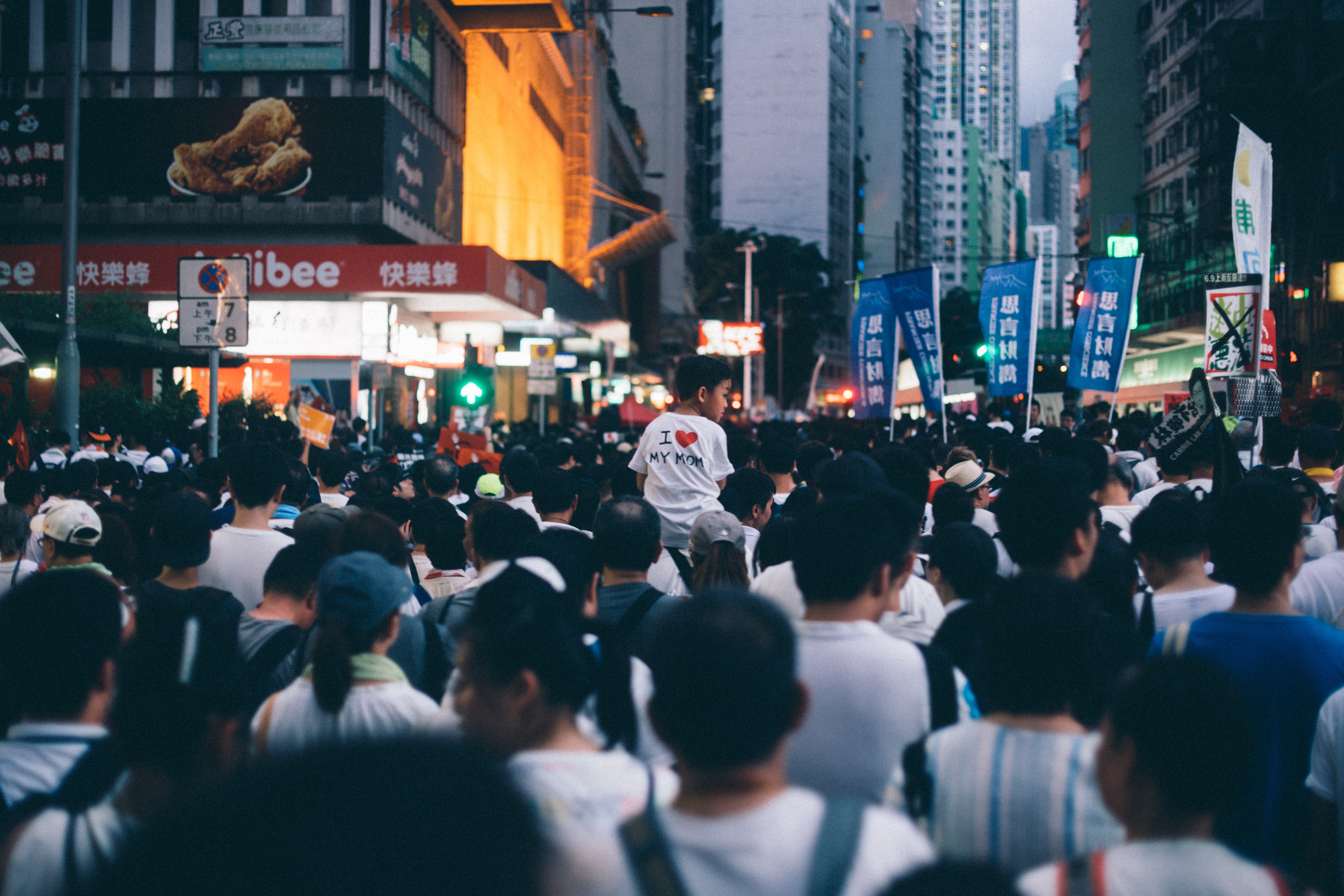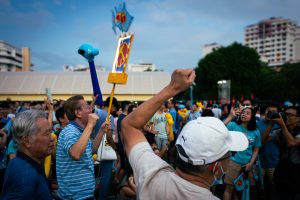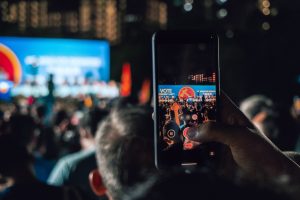Over the last week, record numbers of Hong Kong residents took to the streets in mass protests against the legislative assembly’s proposed extradition bill, outstripping the 2014 Umbrella Movement for scale, support—and violence.
The protests were sparked by a proposed bill that would have allowed Chinese authorities to extradite residents of Hong Kong to mainland China for criminal proceedings. While Hong Kong’s independent legal system follows common law, and is transparent and open, China’s is opaque and subject to the whims of the totalitarian Communist Party of China (CPC).
Fears were heightened after the disappearance of five Hong Kong booksellers, some of whom were virtually kidnapped from Hong Kong territory. 2019’s proposed extradition bill could have created a legal framework for such occurrences. The ensuing outcry was so enormous that the legislature was finally forced to shelve the bill.
But the protests haven’t ended, because for Hong Kongers, the protests are about more than just one bill. They are about patriotism, about identity, about a battle for the heart and soul of the territory that stretches back to the very day it swapped the Union Jack for the Five-starred Red Flag.
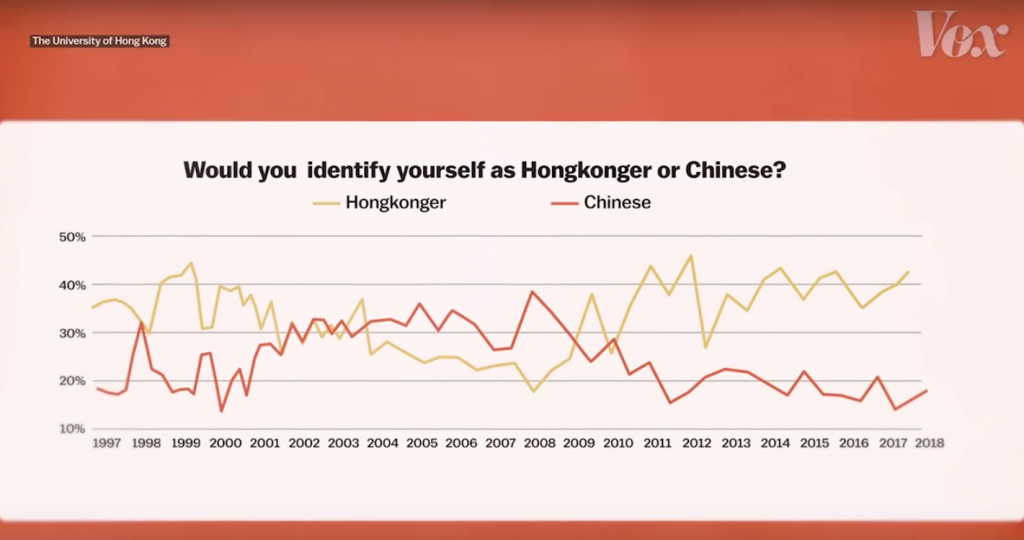
In a way, the most recent protests—2014’s Umbrella Movement, last week’s violence—are canaries, not coal mines; reflecting this trend of increasing identification with city rather than nation. The very word “Hong Konger” is part of this phenomenon: it was added to the Oxford dictionary as recently as 2014.
So what happened? At the turn of the decade, did the people of Hong Kong re-awaken to their aspiration for democracy? Or was there something more intrinsic and personal at stake?
For analysts at the time, the most definite turning point for public opinion on Beijing was the Moral and National Education (MNE) protests of July 2012. The MNE syllabus, a proposal by Hong Kong’s Education Bureau, was laughably pro-CPC and anti-democracy. For many Hong Kongers, its introduction constituted unacceptable levels of CPC meddling in Hong Kong affairs that had not been seen since 2003’s proposed National Security Bill.
However, the very introduction of the MNE policy was part of a larger CPC response to the ‘Hong Konger trend’ of the last decade. CPC officials lambasted the very study that I’m quoting—going so far as to personally target its director, Robert Chung. Clearly, the MNE was an attempt to reverse the ‘Hong Konger trend’, rather than the inciting incident for the trend itself.
So if the MNE’s not the ticket, what is?
In the HKU study, the peaking of pro-Chinese sentiment was in June 2008, where 38.6% of residents identified as Chinese and only 18.1% as Hong Konger. Olympic fever was in full swing; China was ramping up to host the world for the first time since the Century of Humiliation, but under very different circumstances.
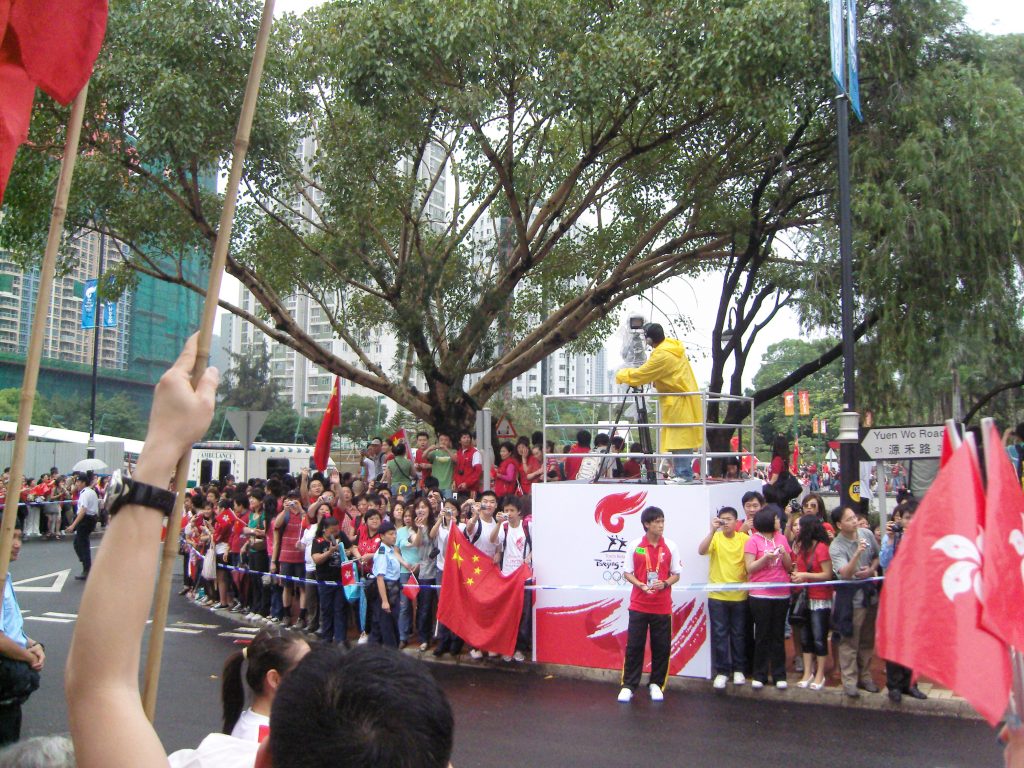
But for the survey conducted in December that year, residents identified as 21.8% Hong Konger, 34.4% Chinese. From then on, they feel less Chinese, more Hong Konger.
Today, 40% identify as Hong Konger. Only 15% Chinese.
Perhaps Beijing’s 2008 Olympic success was a watershed, an indicator that Hong Kong was no longer China’s only connection to the rest of the world, and the city’s cherished sovereignty would never again be as respected by the CPC.
Perhaps the financial crash of September, precipitating the Mini-Bond crisis in Hong Kong, showed how the territory had exhausted the economic benefits extractible from reunification. A mainland institution, Bank of China, was responsible for up to 40% of the insolvent Mini-Bonds, largely accountable for the suffering of Hong Kong residents.
Perhaps these events were a crystallisation of residents’ feelings that they were, to put it simply, Chinese, but not really China. Media reports suggest a host of reasons for residents’ dissatisfaction with mainlanders: unruly and boisterous mainlanders who were taking up public services, driving up property prices, and crossing into the territory just to give birth in its public hospitals. Hong Kongers were called dogs, mainlanders were labelled locusts. Cantonese nationalists, once an obscure group, rose to prominence in anti-Beijing protests.
These are just suggestions. Chung refused to speculate on the reasons behind his study’s figures.
“I am not a politician,” he said, “I will let history tell the true value of my work.”
And perhaps history gives the most significant clue to this trend. The political movement behind 2019’s protests are driven by youth—the number of registered voters aged 18-35 rose from 58% in 2000 to 70% in 2016.
For the previous generation, whose cultural Chinese identity was in opposition to their British colonial masters, reunification may have meant a return to their roots from foreign control.
But those born at the turn of the millennium have only known one ‘foreign’ oppressor—the CPC. For some of these youth, patriotism doesn’t mean allegiance to CPC, but to the memory of the Tiananmen protesters. In 2019, more than ever before, these same youth are coming of age—and coming out into the streets.

Mainland officials have tried to paint the protests as nothing more than a pro-democracy movement instigated by malicious foreigners who are disrupting the People’s Republic for their own gain. After all, Western democracy is not the only legitimate political system out there (see: Singapore).
But democracy is just one thread in the grand tapestry of the Hong Kong people’s protest. They are deeply patriotic, about who they are; determining their own identity, asserting their own limited sovereignty, free of Beijing’s cultural, political, and economic influence.
2047, the date of Hong Kong’s complete re-integration with the mainland, is fast approaching. To many young Hong Kongers, it represents more than the abdication of a free political system—it is an erasure of their very identity.
In 2019’s protests, they’ve shown unprecedented willingness to resist, to fight, because this time, it’s different. This time, it’s personal.

